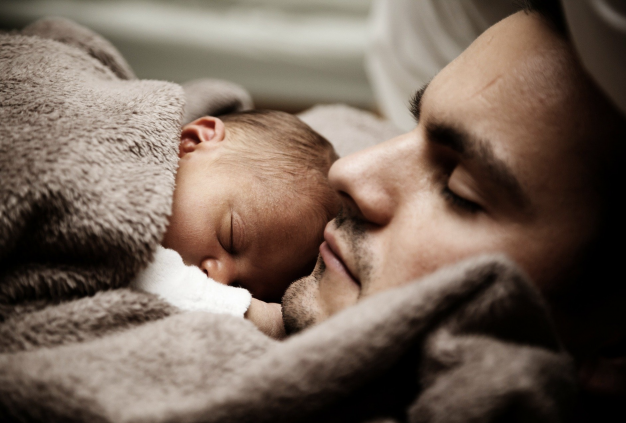
‘Support frontline workers in helping parents struggling with safer sleeping advice
A new report by the UK’s Child Safeguarding Practice Review Panel is urgently calling for new tools to help prevent the sudden unexpected death of infants (SUDI).
It’s the key conclusion of an independent panel of experts which reviews serious child safeguarding incidents, when children have died or suffered serious harm, to learn how to improve the safeguarding system.
While the overall numbers of babies dying from SUDI are falling, there are still a ‘worrying number’ of deaths that have been referred to the panel as ‘serious child safeguarding incidents’. Between June 2018 and August 2019, the deaths of 40 babies from SUDI were reported to the panel. Most died after co-sleeping in bed or on a chair or sofa, often with parents who had consumed drugs or alcohol.
The review reveals families with babies at risk of dying in this way are often struggling with several issues, such as domestic violence, poor mental health or unsuitable housing. It found that these deaths often occur when families experience disruption to their normal routines and so are unable to engage effectively with safer sleeping advice.
The knock-on effects of the COVID-19 pandemic and the associated anxieties about money, social isolation and mental health issues, disruptions that led to the deaths of these infants may be more prominent at present.
It is vital that practitioners work
together to help parents
To tackle this, the panel wants local areas to reduce SUDI risks by incorporating wider strategies for responding to social and economic deprivation, domestic violence and parental mental health concerns. This should be backed up by new government tools and processes to support frontline practitioners and local safeguarding partners to make these changes.
Karen Manners, Interim Chair of the Child Safeguarding Practice Review Panel, said: “The unexpected death of an infant is a tragedy and although it’s not always predictable, some babies appear to be more at risk. Families with children at higher risk of SUDI are often struggling with several issues, such as domestic violence, poor mental health or unsuitable housing, and infants may die after co-sleeping on a sofa or with parents who have consumed drugs or alcohol.
‘Families with children at higher risk are often struggling with other issues’
“Therefore, it’s vital that practitioners work together to help parents understand how to make sure that every sleep is a safe one for their baby.
The review examines the deaths of 14 babies from 12 local areas to understand how professionals can best support parents to ensure that safer sleep advice is heard and embedded.
The findings showed:
- families living within a context of recognised background risks, such as deprivation and overcrowding, domestic violence or poor mental health, are at heightened risk of losing a baby to SUDI – all those working with families need to recognise that and work together – this is not just an issue for midwives and health visitors
- a flexible and tailored approach to prevention is needed that is responsive to the reality of people’s lives – that means talking honestly with parents about how they will cope in different situations to ensure every sleep is safe
- the best local arrangements for promoting safer sleeping involve a range of professionals as part of a relationship-based programme of support, embedded in wider initiatives to promote infant safety, health and wellbeing
- a prevent and protect practice model should be locally adopted to recognise the continuum of risk of SUDI with support and interventions that are graded to reflect the needs of different families.
Jenny Ward is executive of The Lullaby Trust, a charity which works to help prevent unexpected deaths in infancy. She said that the review highlighted how safer sleep, despite being the best way to reduce SUDI, was ‘not always easy to follow’.
“We need to identify the families who require additional support to help make decisions that are right for them and their baby, particularly when faced with an unexpected situation such as when your baby is unwell or you are staying away from home,” she said.
‘We need to identify the families who need extra help’
“Despite great reductions in SUDI rates over the past few decades there is still a lot of work to be done, and we know the devastation the death of a baby has on families. We welcome the recommendations and look forward to sharing our learning and knowledge around communicating with families to prevent more babies from dying.”
The review also recommends that further practice-based research is undertaken to establish the efficacy of different interventions to reduce the risk of SUDI and into the use of behavioural insights and models of behaviour change. The panel is exploring options to commission this research and is interested in hearing from organisations to partner on this work.




